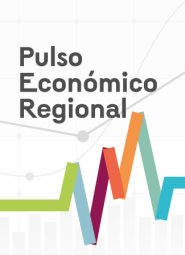Documentos de Trabajo Sobre Economía Regional y Urbana - Staying in Power: How Does Political Continuity Shape Debt?
The series Documentos de trabajo sobre economía regional y urbana (only in Spanish, Working Papers on Regional and Urban Economics) is a publication of Banco de la República in Cartagena. The opinions contained in this document are the sole responsibility of the authors and do not commit Banco de la República or its Board of Directors.
The series Documentos de trabajo sobre economía regional y urbana (only in Spanish, Working Papers on Regional and Urban Economics) is a publication of Banco de la República in Cartagena. The opinions contained in this document are the sole responsibility of the authors and do not commit Banco de la República or its Board of Directors.
Abstract
This paper investigates the relationship between political continuity and public municipal debt in Colombia, highlighting how political cycles influence fiscal behavior at the subnational level. Unlike national cycles, local political dynamics, marked by consecutive electoral victories of the same party, significantly impact fiscal policy and debt accumulation. Using a Kink Regression Discontinuity design, we explore the effects of these electoral outcomes on public financial debt. Our findings reveal that municipalities governed by the same party or coalition across successive elections exhibit a 0.25% increase in debt levels for every percentage point increase in their election win margin. This trend becomes more pronounced over time, with debt levels peaking in election years. The robustness of our results is confirmed through various bandwidths and placebo tests, which include random shuffling of electoral outcomes and reassignment of electoral results from different years. Our study contributes to the understanding of how political stability or continuity can shape fiscal outcomes at the regional level, a topic that has received limited attention in the political economy literature.
“Political stability or continuity can shape fiscal outcomes at the regional level, a topic that has received little attention in the political economy literature."





























































